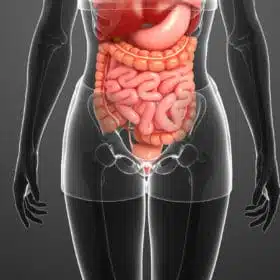Losing body weight is a common desire for women (and for many men). Being overweight is associated with many negative characteristics: Lack of discipline, laziness, lack of success. Stars and starlets in the media outdo each other with extreme diets. Even cosmetic surgery is not shied away from. Implants give the illusion of a washboard stomach or clearly visible biceps. Women in particular are very self-critical of their reflection in the mirror and feel very uncomfortable with excess pounds and flab. So what could be more obvious than to jump on the many diets that are proclaimed everywhere? But are diets enough to achieve a slim, toned body? Or is regular exercise also necessary to achieve this goal? If you would like to find out more about this topic, you can find a few tips here.
Can women lose weight without exercising?
To give you the honest answer right away: Yes, it will work. You always lose body weight in the same way. No matter which diet you choose, whether you separate your nutrients, fast or follow special dietary guidelines. The key to weight loss is always to create a calorie deficit. Don't let anyone pull the wool over your eyes: there is no such thing as a diet where you can eat whatever you want and never feel hungry. Mysterious diet combinations cannot eliminate calories from your body and make you slim without any sacrifice. To lose 1 kilogram of body fat, you need to cut back on around 7000 calories. This is the only way to lose fat!
A math problem
On average, women need between 2000 and 2500 calories per day to maintain a constant body weight. The exact requirement depends on a number of factors. These include your basal metabolic rate (how many calories your body needs at absolute rest) and your working metabolic rate (how many additional calories you need to carry out your usual activities). If you want to achieve a healthy weight loss of 500 grams to 1 kilogram in one week, you should save around 7000 calories in this week. This would mean a calorie deficit of 500 - 1000 calories a day for you. You are therefore moving in a range of 1000 to 1500 calories per day, which you need to save through your diet. It is important to know that you should never go below your basal metabolic rate and that you also reduce your intake of important nutrients with a greatly reduced number of calories.
What exactly is the yo-yo effect?
You've probably heard the term yo-yo effect before. But what does this term mean? This undesirable effect occurs in the following way: You decide to go on a tough diet and drastically reduce your calorie intake. If you stick with it long enough, you reduce your basal metabolic rate in an undesirable way. In its need - and in order not to starve - your body turns to your muscle tissue and melts it down for energy. At some point, you break your diet because the hunger becomes unbearable. You return to your usual eating habits and therefore also consume the usual number of calories. Unfortunately, however, you have also sacrificed some of your valuable and metabolically active muscle tissue by depleting your body. You no longer need as many calories, but you are now consuming more of them every day because your diet is actually over. In no time at all you will have regained your old weight. If things go badly for you, you will even gain a few extra pounds. And so your weight goes up and down again and again: just like the movement of a yo-yo.
The smarter way
Your math problem will look completely different if you incorporate sport and plenty of exercise into your plan. For one thing, you don't have to restrict yourself too much when eating. If you consume 500 calories a day through cardio and/or strength training, your working metabolic rate increases significantly and you can eat more. You will still have reached your calorie deficit. But it gets even better: Even at rest, muscle mass consumes more calories than fat tissue. If you build up muscle through training, your body still needs more calories even if you do nothing. This increases your basal metabolic rate in the long term. The yo-yo effect can no longer occur so quickly.
The optical effect
Fat pads are not necessarily a feast for the eyes. However, a low weight does not guarantee that you will look better (keyword skinny fat). If you lose too much weight too quickly, your skin may not be able to keep pace with your development. If, on the other hand, you build up muscle, it can be plumped up by muscle tissue. If you go too far in your calorie deficit and don't exercise, you may be thin but look sick and rickety. Low numbers on the scales say nothing about your state of health.
Conclusion
It is therefore perfectly possible to lose weight with a diet alone. However, if you don't just want to get thinner, but want to have a beautiful, toned body, you should exercise and train. Not only will you be doing your health a favor, but the visual results will also be impressive.








